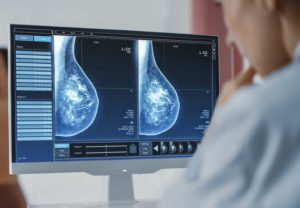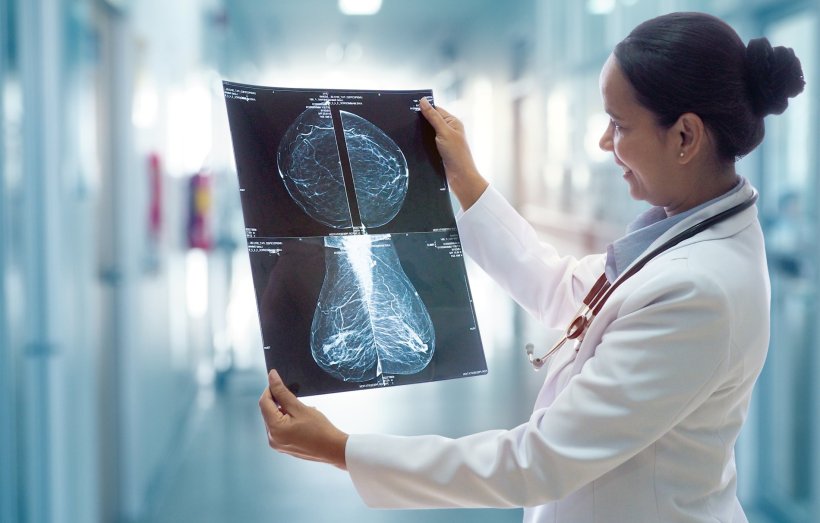Introduction
In the dynamic landscape of modern medicine, the fusion of artificial intelligence (AI) and healthcare has led to transformative breakthroughs, notably in the realm of breast cancer detection. Breast cancer, a pervasive and potentially life-threatening disease, has long demanded precise and timely detection for effective treatment. Traditional methods, while valuable, have often faced challenges of accuracy and reliability. However, recent strides in AI technology have unveiled a promising path forward, showcasing remarkable potential to revolutionize breast cancer detection and fundamentally alter the prognosis for millions of individuals worldwide. This article delves into the recent research illuminating AI’s pivotal role in significantly boosting breast cancer detection rates, highlighting the profound impact it holds for patients, clinicians, and the future of healthcare.
The Current Landscape of Breast Cancer Detection
Breast cancer stands as one of the most prevalent forms of cancer affecting millions worldwide, with early detection being pivotal for successful treatment and improved survival rates. Traditional detection methods, such as mammography, have been the cornerstone of breast cancer screening. However, these methods often come with limitations, including false positives, false negatives, and the reliance on human interpretation.
AI’s Role in Revolutionizing Detection Techniques
The integration of AI into medical imaging has revolutionized the landscape of breast cancer detection. AI-driven algorithms analyze mammograms and other imaging data with remarkable precision, aiding clinicians in early identification of potential abnormalities that might be overlooked by human eyes. Machine learning models, trained on vast datasets, have honed the ability to recognize patterns indicative of breast cancer, thereby reducing the occurrence of false results.

Enhancing Accuracy and Efficiency
Research findings have showcased the significant impact of AI in improving the accuracy and efficiency of breast cancer detection. Studies indicate that AI-based systems exhibit higher sensitivity in detecting early-stage tumors, minimizing false negatives and enabling prompt intervention. Moreover, AI streamlines the diagnostic process, expediting the identification of potential malignancies and reducing the time required for analysis.
Advancements in AI Algorithms
The evolution of AI algorithms has been instrumental in augmenting the capabilities of breast cancer detection systems. Deep learning algorithms, neural networks, and convolutional neural networks (CNNs) have emerged as powerful tools in deciphering complex patterns within medical images. These algorithms continually learn and adapt, enhancing their accuracy over time, and have demonstrated unparalleled potential in assisting radiologists and clinicians in interpreting imaging data.
Collaborative Efforts in AI Development
The synergy between medical experts, data scientists, and technology innovators has been pivotal in the development of AI solutions for breast cancer detection. Collaborative initiatives have facilitated the amalgamation of clinical expertise and technological advancements, fostering the creation of robust and reliable AI-driven systems tailored for enhanced detection accuracy.
Addressing Challenges and Ethical Considerations
Despite the remarkable strides, challenges persist in the integration of AI in healthcare. Ethical considerations regarding patient privacy, data security, and the need for continuous validation of AI algorithms remain paramount. Ensuring the ethical deployment of AI in healthcare necessitates stringent regulations, transparent practices, and ongoing evaluation to guarantee patient safety and trust.

Future Implications and Prospects
The future of AI-driven breast cancer detection appears promising, with ongoing research focusing on refining algorithms, expanding datasets, and integrating complementary technologies. The potential to incorporate AI into diverse modalities, such as MRI and ultrasound, holds the promise of a comprehensive and multi-faceted approach to detecting and managing breast cancer.
Patient-Centric Impact and Empowerment
Ultimately, the integration of AI in breast cancer detection endeavors to prioritize patient-centric care. The early identification facilitated by AI not only improves treatment outcomes but also empowers patients with timely interventions, potentially reducing the physical, emotional, and financial burdens associated with advanced-stage diagnoses.
Conclusion
The marriage of AI and breast cancer detection heralds a new era in healthcare, offering unprecedented opportunities to revolutionize early diagnosis and treatment efficacy. As research continues to unveil the capabilities of AI-driven systems, collaborative efforts between medical professionals, technologists, and regulatory bodies remain crucial in harnessing the full potential of this transformative technology for the betterment of breast cancer care. The advancements in AI technology stand as a testament to humanity’s relentless pursuit of leveraging innovation for the greater good, with the potential to alleviate the burden of breast cancer and positively impact countless lives worldwide.




